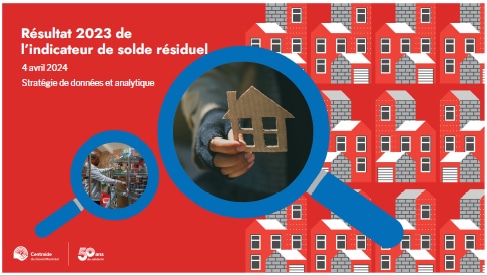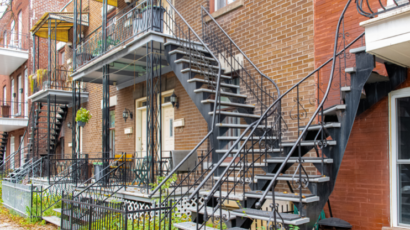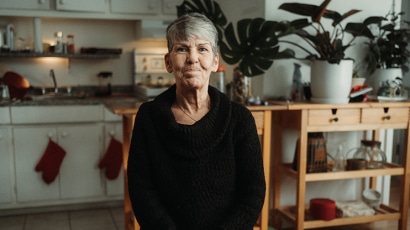Helping
the most vulnerable
cope with the housing crisis
Access to decent and affordable housing has become a key issue in the fight against inequality and poverty. Greater Montreal’s housing crisis has exacerbated the vulnerability of many people and impacted other significant social problems, such as homelessness, child development, mental health, food security and domestic violence.
The most recent data show that the housing situation of renters continues to be difficult and is particularly alarming for people who live on a low income. Their issues have been exacerbated by the high cost of housing and the dire shortage of social and non-speculative housing.
Greater Montreal’s housing crisis needs sustainable, collective solutions. In collaboration with governments, community groups, housing developers, and the general public, we must act together to ensure that everyone can live in dignity and safety.

Residual income
To quantify the scope of the crisis, Centraide uses the residual income measure. This indicator tracks the minimum annual income required to cover essentials such as housing, clothing, food and transportation. In other words, residual income is the money that households have left over after paying for their rent and basic needs.
Currently, the annual income that households must earn to pay for housing and the essentials is $31,000 for the Greater Montreal area.
However, 310,000 households, or 18,000 more than last year, are below this threshold. This means that, once they pay for essential expenses, these households don’t have enough money for everything else. We must also think about households who earn just above this threshold and who are also in a very vulnerable situation.

Residual Income Report
Centraide of Greater Montreal and the Montreal office of McKinsey & Company jointly present a report on residual income. This document, the result of collaboration between these two organizations, combines their respective expertise to offer a solid factual basis that tracks changes in the housing situation in Greater Montreal.
(Available in French only)
Civil society takes action
Centraide of Greater Montreal is working with a very broad range of partners to find innovative solutions to the housing crisis. This video showcases the different stakeholders who are taking action to make concrete changes to deal with the housing crisis. Find out how we are working together to create sustainable solutions.
Housing initiatives
Since the Together for Housing event held on May 15, 2023, a great deal of progress has been made. Here are the main advances so far:
- Proposal of a master indicator (residual income, as mentioned above) to measure the scope and evolution of the housing situation in Greater Montreal.
- Publication of the “Engagé·es pour le logement” report, a comprehensive and in-depth overview of the Together for Housing event.
- Publication of an open letter in La Presse about the commitment of over 80 co-signatories to work together to tackle housing issues.
- Support for the creation of the Groupe des 21 (a group of private, municipal and social stakeholders working on a concerted action plan for housing in Quebec) and participation in its meetings.
- Increase of 15% in financial support for housing committees that help thousands of tenants every year to enact their rights when dealing with housing issues (unjustified rent increases, evictions, substandard conditions, etc.).
- Political advocacy to develop a government action plan on housing to meet the needs of people in vulnerable situations.
- Participation in consultations on the city’s housing policy.
- Active contribution to the Groupe d’accélération pour l’optimisation du projet de l’hippodrome (GALOPH) and support for participation on the Corporation de développement communautaire de Côte-des-Neiges for this project.
- Support for an experiment to create a rent registry, in partnership with Vivre en Ville.
- Sale of the Centraide parking lot to the Unité de travail pour l’implantation de logement étudiant (UTILE).

This ability to unite and take action in the fight against poverty and social exclusion is our superpower that has guided the work of the [GALOPH]. This group has worked to define what a neighbourhood would look like at the site of the former Montreal Hippodrome, with over 10,000 housing units protected from real estate speculation, including 4,800 social or community housing units, 60% of which would have three or four bedrooms.”
Claude Pinard, President and Executive Director of Centraide of Greater Montreal
From the column “GALOPH : La société civile passe à l’action,” La Presse, April 24, 2024.





